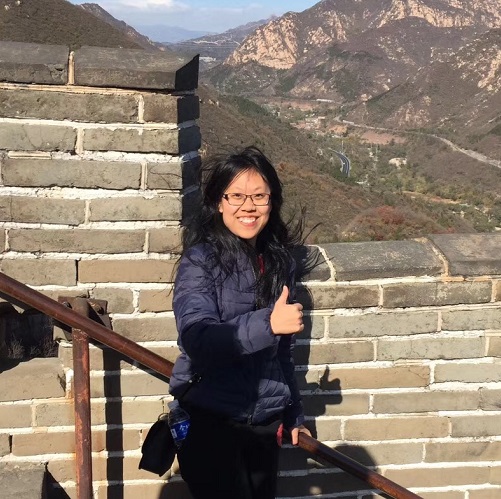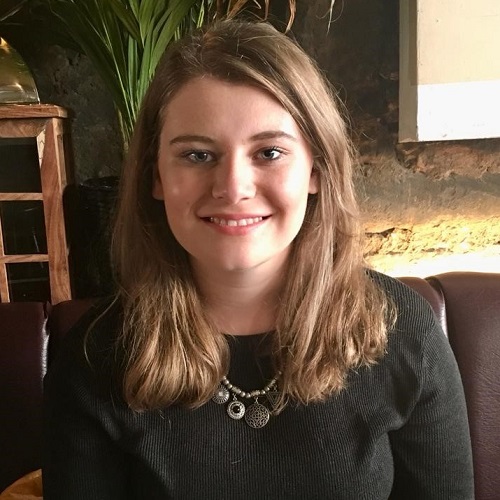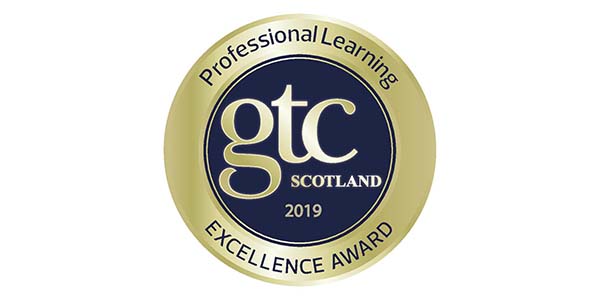PGDE Secondary Education: Languages
ApplyKey facts
- Start date: August
- Study mode and duration: Full-time: 36 weeks including 18 weeks of placement experience
Part-time: two years including 18 weeks of full-time placement experience UCAS codes:
- French: 8X67
- German: 329D
- Mandarin: 7X64
- Spanish: 341B
Combine languages: It's also possible to study these languages in combination. Italian and German are only available as single subjects and must be studied with another language. Please check UCAS for the specific combination codes.
Study with us
- open to talented linguists and enthusiastic individuals who are interested in teaching young people their specialism in French, German, Spanish, Italian or Mandarin
- learn from on-campus classes and 18 weeks of placements in schools
- become qualified to teach in locations worldwide
- opportunity to achieve 80 Masters-level credits
- funded places available (Scottish/Home students only)
The Place of Useful Learning
UK University of the Year
Daily Mail University of the Year Awards 2026
Scottish University of the Year
The Sunday Times' Good University Guide 2026
Why this course?
PGDE Modern Languages at Strathclyde is held in high esteem by students, tutors and placement schools alike. You'll benefit from an interactive learning experience comprising practical based learning and the exchange of wide-ranging ideas within the multi-lingual group. Please note that Italian is only available in combination with another language.
Worldwide qualification
The PGDE is a well-recognised teaching qualification worldwide and is regulated by:
- the General Teaching Council for Scotland (GTCS)
- the Scottish Government
If you wish to teach in another country you should contact the relevant education authority to check your eligibility.



I taught French and German for 21 years in schools before joining the Strathclyde team of education tutors. I bring a current experience of teaching today to ensure the experience of our students is up-to-date and very relevant to the curriculum they will deliver in the classroom.
Course Leader
What you'll learn
This course will equip you with the theoretical knowledge and practical skills you require. The PGDE is modular in structure and students will study three modules across the year:
- Education Studies; Professional Values
- Professional Learning Through Enquiry
- Professional Skills
- Professional Skills - Curriculum and Pedagogy
- Professional Skills - Professional Practice
PGDE operates a model whereby students attend classes on campus followed by blocks of continued learning on placement. The modules run in parallel and learning and practice is cumulative.
On-campus time is used to familiarise you with the curriculum, allow you to collaborate with students and begin to plan lessons and develop materials. Students will have the opportunity to teach mini-lessons and explore innovative and motivating ways of engaging children and young people.
Placement
You'll spend 18 weeks of the course on placement in a school within Scotland. You'll be continually assessed while there to show you meet the requirements for the Standards for Provisional Registration.
You must attend your placement school throughout the full working day. You must also attend school on staff in-service days unless told otherwise by your school.
Placement is your chance to put what you're learning into practice. You'll explore your own teaching style, learn new techniques and develop relationships with your pupils.
You must keep a portfolio of progress while on placement. This placement file will form part of the evidence of your meeting the Standards for Provisional Registration and prepares you for career-long professional learning.
Future employment
Students from Scotland, other parts of the UK and the Republic of Ireland, who are studying at a Scottish Higher Education Institution are eligible to join the Teacher Induction Scheme (TIS). This provides a guaranteed 1-year training post in a local authority to every eligible student graduating with a teaching qualification from one of Scotland’s Higher Education Institutions. Find out more about the Teacher Induction Scheme.
The PGDE is a well-recognised teaching qualification worldwide. If you wish to teach in another country you should contact the relevant education authority to check your eligibility.
Work anywhere in Scotland
The Preference Waiver Scheme is a scheme whereby a student teacher on TIS agrees to be allocated to their one year post anywhere in Scotland. The additional financial incentive is in the region of £8,000.
Course content
As part of the course, you’ll have the opportunity to submit two of your assignments at Masters level. If you do this, you’ll be almost halfway towards a Masters in Education qualification. If you go on to do the Masters in Education, all you’ll have to do is complete two masters level classes, a research class, and a dissertation. You can do this on campus or by distance learning.
Education Studies: Professional Values
In this module, you'll explore the theoretical underpinnings of education. You'll be encouraged to engage with issues of the nature and the purpose of education, social justice and equality, and practice and policy in relation to ethical and political ideas. Throughout this module, we aim to disrupt and expand your thinking about education. You'll be asked to reflect on your values and beliefs in relation to a range of educational questions and issues and you will be presented with questions designed to challenge and refine your current thinking.
The module will give you opportunities to consider how theoretical underpinnings relate to the classroom; how your developing understanding translates into the education context; and how your own values and beliefs interact with your developing professional identity. Human Rights and Learning for Sustainability together form the basic architecture of this module.
Professional Learning Through Enquiry
This module aims to develop students as enquiring self-reflective practitioners who are able to work collaboratively to develop skills, knowledge and expertise in an area of professional practice. Students will be supported to develop as autonomous, transformative leaders of change. Across the globe there is a growing call for education systems to be responsive to the increasingly dynamic, complex and fast-changing nature of society. Through this module, students will develop the skills and expertise necessary to respond to the changing circumstances of the learning communities they encounter.
Professional Skills
- Curriculum and Pedagogy
- Professional Practice
Taught both on campus and in schools, this module will enable you to become an effective teacher through learning pedagogical theory, observing experienced teachers and applying your knowledge and understanding in the practical context.
Masters Credits
You have the opportunity to achieve up to 80 credits at Masters level which can be used towards further study following the course. This is fully supported by additional input during the programme.
Interested in postgraduate study?
At the Faculty of Humanities and Social Sciences, our friendly and knowledgeable team will be available to provide you with all the information you need to kick-start your postgraduate journey at the University of Strathclyde. Register for upcoming events below:
Learning & teaching
The course encourages an active and participative style of learning in order to meet your professional needs, and to promote a commitment to continuing professional development.
Timetable
The hours for this course are 9am to 5pm. You’re expected to be working on course-related activity during those hours.
Assessment
To be awarded the PGDE you must pass all course modules.
Course work
Each class includes course work that involves group or independent study on specified tasks. This may involve presentations and written reports.
Although these are not assessed formally they're essential learning experiences and are course requirements.

Entry requirements
The entry requirements for PGDE courses are based on the requirements set by the General Teaching Council for Scotland (GTCS). The minimum entry requirements we ask for, are as follows:
| Degree requirements | An ordinary degree, or international equivalent. Degree must include:
All the languages taught in Scotland are valuable – there is no hierarchy of language. The entry requirements outlined take account of the context in which languages are taught. Where possible, applicants should offer more than one language. Language residencyApplicants are required to undertake a residency of 6 months in their first language and 3 months in their second language. We are of the view that applicants require the language and cultural elements provided by immersion in the relevant country to help them share their love of languages. The applicant’s academic study must include an element that will allow them to contribute to the wider aspects of programmes of study in schools, such as literature, cultural studies, area studies or languages in work. While living abroad the applicant must have fully taken part in the language and culture of the relevant country. Applicants must normally live in the relevant country in blocks of at least three months. First language:
Second language:
Residency can be evidenced by:
Native speakers:
|
|---|---|
| Maths & English |
Maths and English qualifications can be in progress at the time of application. Acceptable alternative Maths and English qualifications are listed on our PGDE FAQs page. |
| Experience & References |
Relevant experience should be noted in your personal statement. At present, it's difficult for all potential student teachers to access schools to gain experience in support of their application for programmes of Initial Teacher Education. Where possible, opportunities should be sought to gain experience in contexts which involve working with children and/or young people. Applicants aspiring to be a teacher should show that they:
References Applications made via UCAS require one reference and those made via the University direct system require two. This should be an academic reference if you are a current student or recent graduate (ie within the last 5 years). A professional reference (current/recent employer who can testify to your suitability to teach) is acceptable if you graduated more than 5 years ago. This can also relate to any voluntary experience you have working with children/young people. A reference must be included with your UCAS application; only in very exceptional circumstances will we consider an application without one and you must explain in your personal statement why this has been omitted. The reference should be provided as soon as possible as no offer can be made until the reference has been received. References from family or friends are not acceptable. |
| English language requirements | You're required to have a suitable minimum level of competency in the English language if your first language is not English or if you haven't been educated wholly or mainly in the medium of English. For postgraduate studies, the University of Strathclyde requires a minimum overall score of IELTS 6.5 (no individual test score below 5.5) or equivalent. Tests are valid for two years. Pre-sessional courses in English are available. If you’re a national of an English speaking country recognised by UK Visa and Immigrations (please check most up-to-date list on the Home Office website) or you have successfully completed an academic qualification (at least equivalent to a UK bachelor's degree) in any of these countries, then you don't need to present any additional evidence. If you're from a country not recognised as an English speaking country by the United Kingdom Visa and Immigrations (UKVI), please get in touch before making your application. Please note that IELTS is not equivalent to a Higher (SCQF Level 6) English qualification. These are two separate requirements. In order to meet the PGDE entry requirements you'll be required to have both or equivalent. |
| PVG and overseas police check requirements | All applicants who have been offered a place on the PGDE course will be required to complete an application to Join PVG Scheme or an application for Existing PVG Scheme Member through Strathclyde University prior to starting the course. Students will be required to pay between £18 to £59 depending on the related work they apply to. If applicable, applicants who have been given an offer will also be required to obtain the relevant oversea(s) certificate(s) of good conduct. |
Pre-Masters preparation course
The Pre-Masters Programme is a preparation course held at the University of Strathclyde International Study Centre, for international students (non-UK/Ireland) who do not meet the academic entry requirements for a Masters degree at University of Strathclyde.
Upon successful completion, you'll be able to progress to this degree course at the University of Strathclyde.
Please note: Previous Maths & English qualifications and your undergraduate degree must meet GTCS minimum entry requirements as well as the pre-Masters course and an interview will be conducted before an offer can be made.
International students
We've a thriving international community with students coming here to study from over 140 countries across the world. Find out all you need to know about studying in Glasgow at Strathclyde and hear from students about their experiences.

Fees & funding
All fees quoted are for full-time courses and per academic year unless stated otherwise.
Fees may be subject to updates to maintain accuracy. Tuition fees will be notified in your offer letter.
All fees are in £ sterling, unless otherwise stated, and may be subject to revision.
Annual revision of fees
Students on programmes of study of more than one year (or studying standalone modules) should be aware that the majority of fees will increase annually.
The University will take a range of factors into account, including, but not limited to, UK inflation, changes in delivery costs and changes in Scottish and/or UK Government funding. Changes in fees will be published on the University website in October each year for the following year of study and any annual increase will be capped at a maximum of 10% per year. This cap will apply to fees from 2026/27 onwards, which will not increase by more than 10% from the previous year for continuing students.
| Scotland | To be confirmed |
|---|---|
| England, Wales & Northern Ireland | To be confirmed |
| Republic of Ireland |
If you are an Irish citizen and have been ordinary resident in the Republic of Ireland for the three years prior to the relevant date, and will be coming to Scotland for Educational purposes only, you will meet the criteria of England, Wales & Northern Ireland fee status. For more information and advice on tuition fee status, you can visit the UKCISA - International student advice and guidance - Scotland: fee status webpage. Find out more about the University of Strathclyde's fee assessments process. |
| International | £20,950 |
| Additional costs | Placements & field tripsTravel to schools PVG Scheme (Protection of Vulnerable Groups)£59 membership fee, £18 for existing members Visa & immigrationInternational students may have associated visa and immigration costs. Please see student visa guidance for more information. |
| Available funding | Take a look at our scholarships search for funding opportunities. |
Please note: the fees shown are annual and may be subject to an increase each year. Find out more about fees.
How can I fund my course?
Scottish students
Scottish students can apply to have the cost of their tuition fees paid for by the Scottish Government. Applications should be made online through the Students Award Agency Scotland (SAAS) website, the PGDE course falls under undergraduate study.
If you've already had funding for a postgraduate course from SAAS, you'll only receive funding if you apply to a teaching priority subject.
Full-time students who usually live in Scotland may also be eligible to apply to SAAS for a loan, bursary and living-cost grants. Living-cost grants include the Lone Parents’ Grants and the Disabled Students’ Allowance. The exact amount you can get depends on your household income.
Check the SAAS website for more details.
Scholarship search
Check our Scholarship Search for more help with fees and funding.
Glasgow is Scotland's biggest & most cosmopolitan city
Our campus is based right in the very heart of Glasgow. We're in the city centre, next to the Merchant City, both of which are great locations for sightseeing, shopping and socialising alongside your studies.
Our students

Marina Boyer
When I was researching for a PGDE in Scotland, I realised that Strathclyde had a great reputation. The Modern Languages PGDE course met my expectations, and I was eager to join. The interview, with my future mentor Kandi, only confirmed my desire to study at Strathclyde.

Tao Fu
I did my placements at three schools, which definitely boosted my teaching skills. The experience of observing other teachers’ lessons and controlling your own teaching pace was invaluable.

Hailey O‘Reilly
I completed my probationary year in a secondary school in North Lanarkshire. At the end of this year, I was successful in gaining a permanent French and Spanish job in West Dunbartonshire, where I still work. After a year of working as a classroom teacher, I had the fantastic opportunity of undertaking an acting PT Pastoral Care role, which became permanent after a year.

Minrong Zhang
Even after graduation and being in a teaching position for several years, I still review my PGDE folder and go through materials/notes on a regular basis. They can always keep me right when I am unsure about things during my day-to-day teaching.
Careers
A degree in education will equip you for a range of careers working with children and young people.
Most of our PGDE graduates go on to work as teachers in secondary schools across the country. Learn more about what happens after your PGDE.
Secondary School Teachers in Scotland use the Curriculum for Excellence framework. They work with their class to develop skills and abilities, and encourage the pupils to expand their knowledge and understanding further.
Typical jobs
Jobs related to this degree include:
- Secondary Teacher
- Head Teacher
- Further Education Lecturer
- Special Educational Needs Teacher
Working hours
During term time, you'll officially work a 35-hour week but you may have to work more. You'll be in school before the school day starts and stay after the pupils leave. Most teachers take their marking and preparations home to do in the evening.
You'll also participate in parents evening, after school clubs and activities and school trips.
Holidays
A teacher's total working year is 195 days including five days for in-service training. Every year you'll get 40 days holiday at full pay*.
*Source: Teach in Scotland.
Other jobs
There are also many options for those who decide not to go into the classroom. Some alternative job roles are:
- Charity Adviser
- Youth Worker
- Museum Educator
- Education Liason roles
- Private Tutor
Skills you'll need
- excellent communication
- a good imagination and creativity
- organisational and time-management skills
- patience
- ability to work as part of a team
- enthusiasm, energy and excitement for what you do
Salary
Secondary school teacher current main salary scales range from £31,584 to £47,565**
**information intended only as a guide. Source: The Educational Institute of Scotland.
Apply
Find out everything you need to know before applying on the PGDE information hub.
Full-time application
Scotland/England/Wales/Northern Ireland students
Please ensure that all parts of the application are completed including details of qualifications which meet the minimum entry requirements. We may be unable to consider incomplete applications. On submitting your application please ensure that you have the following documents to hand. When we require these documents, we will request these from you. Please don’t send documents to us without being asked.
- Your degree certificate (if completed)
- Your academic transcript listing all the modules you have completed (this also applies if your degree is in progress)
- Evidence of Higher English (or equivalent) with a grade between A-C
- Evidence of National 5 Maths (or equivalent) with a grade between A-C
Please note the maximum file size for sending documents is 5.00MB.
Interview selection
We select those candidates who best meet the following criteria:
Does the candidate have:
- evidence that they are suitably qualified?
- evidence of a suitable breadth of knowledge in their degree to cover the Secondary Curriculum?
- sufficient interest in teaching?
- experience of working with young people?
- evidence of good written communication skills?
- a good statement by their referee?
Interview process
If selected you’ll be asked to an interview with a number of other candidates who have applied for places either in your own subject or that are taught in the same division as your chosen subject.
If selected for interview, applicants will be notified after the UCAS deadline.
We advise you to check your Junk folder to ensure an e-mail from us regarding your interview has not been missed.
Interview result
After the interview, a panel will collate the grades from your presentation and the individual interview.
They will then make a decision as to your suitability for the course.
The possible results of the interview are:
- Unconditional offer
- Conditional offer (you still need to satisfy the entry qualifications in some way)
- A rejection of your application
The subject coordinator will send the results to the Faculty Admissions Team who will, in turn, communicate the results to the UCAS.
UCAS will then communicate the result to you.
Should you wish feedback on the selection process please contact the appropriate subject coordinator.
Part-time study
The PGDE can be studied part-time over two years for all secondary subjects, except for Physical Education and Technological Studies. See our Frequently Asked Questions for full details.
UCAS Applications
Apply through UCAS if you are a UK or EU applicant. International applicants may apply through UCAS if they are applying to more than one UK University.
Start date: Aug 2026
Secondary Education
Direct Applications
Our Direct Applications service is for international and part-time applicants who wish to apply to the University of Strathclyde.
Start date: Aug 2026
Secondary Education
Start date: Aug 2026
Secondary Education
Start date: Aug 2026
Secondary Education (Gaelic medium)
Start date: Aug 2026
Secondary Education (Gaelic medium)
Contact us
Prospective student enquiries
Contact a member of our team on LiveChat between 10am and 4pm (GMT)
Telephone: +44 (0) 141 444 8600


